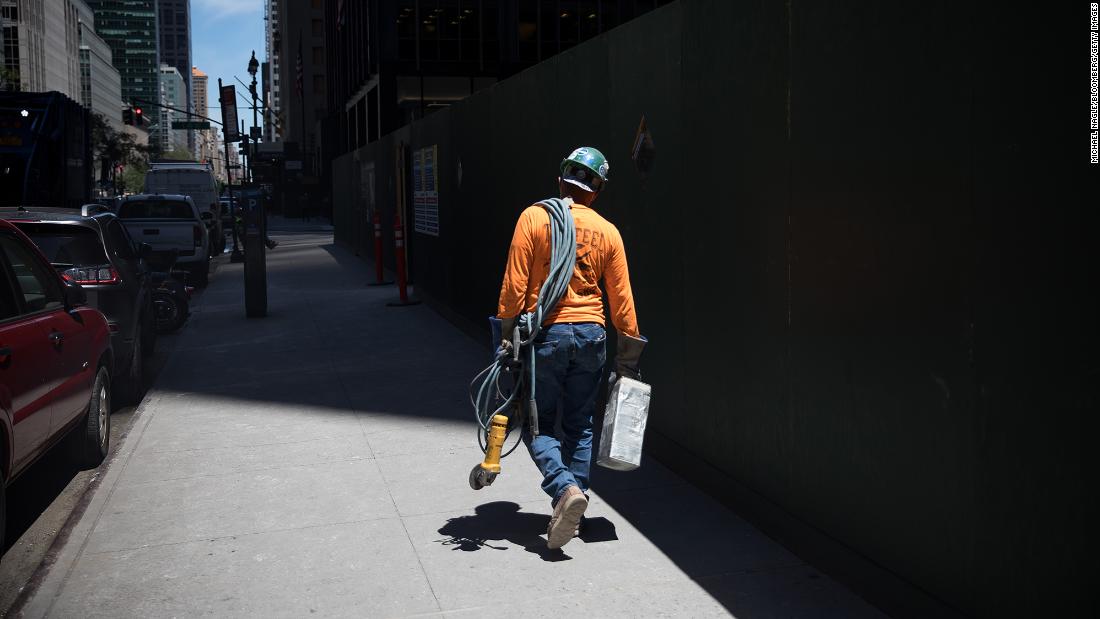
Most of the job losses thus far have been in industries impacted by social distancing, such as entertainment, restaurants and personal care. Those industries are likely to recover once the fear of the pandemic subsides. However, automation and the rapid shift to e-commerce, remote work and online learning will lead to job losses in several other industries that will last well beyond the pandemic.
Sales jobs
Even though retail sales had returned to pre-recession levels by July, employment in the retail sales industry was down 5.8% between February and that month. Excluding food and beverage stores, employment in retail sales was down 7.5%. Big names such as JCPenney, Brooks Brothers and Sur La Table are among the dozens of retailers which have filed for bankruptcy during the downturn. The imminent bankruptcies of others suggest layoffs are far from over in this industry. The retail apocalypse long predicted because of the shift to e-commerce has arrived. At the same time, many tasks in business-to-business sales jobs are susceptible to automation, which may lead to the elimination of many sales jobs.
Office and administrative support jobs
In the past decade, the jobs that were most likely to be replaced by technology were not in manufacturing, as many tend to believe, but were in office and administrative-support jobs, including many routine office jobs done by workers typically without a bachelor's degree. Since the pandemic began, the unemployment rate for these workers increased much more than for other office jobs, from 3.3% in February to 9.8% in July. As many businesses are desperate to cut labor costs, expect businesses to use technology to further automate these types of jobs.
Higher education
The pandemic has accelerated the shift to online learning because colleges and universities nationwide were compelled to finish the 2019-2020 academic year remotely. The 2020-2021 academic year is opening with a major online component which is only increasing as more colleges reverse course and shift back to remote learning. The rise in online education and the resulting reduction in teaching staff is likely to remain even after the pandemic is over. The large drop in revenues and financial support from state and local governments may encourage colleges and universities to cut labor costs by further shifting to cheaper-to-produce online education. Private higher education employment was down 12% between February and June. Many higher education institutions are likely to merge or close entirely in the next couple of years.
Air travel and hotels
The pandemic dramatically reduced the number of business trips taken. Because workers have found that they can collaborate effectively through video conferencing technologies, business travel is likely to remain below pre-pandemic levels. Before this year, business travelers made up a small percent of airline passengers across the major global carriers, but a significant portion of revenue. Similarly, business travelers generated about 70% of total revenues for global hotel brands reliant on corporate meetings and events. The permanent drop in business volume and revenues will mean fewer hotel and airline jobs even after the pandemic is over.
Non-residential construction
The massive shift to remote work, online shopping and online learning will lead to a drop in demand for retail and office space, including for higher education. This change will be large and relatively sudden. It will have an unprecedented impact on non-residential real estate construction as buildings stop going up. Employment in industries that rely on providing services to office buildings and retail stores, such as cleaning and security, will suffer as well.
The good news is that these impacts could be worse. One commonality among the affected sectors is that for the most part, the types of jobs that are likely to not fully recover from the Covid-19 recession tend to not require a bachelor's degree. In normal times that would mean long-lasting high unemployment rates for workers without college degrees. But the massive retirement of baby boomers that will occur through the rest of the decade will lower the supply of non-college graduate workers. That drop in supply will help offset the depleted demand, leading to a new equilibrium. Toward the middle of the decade, the labor market for non-college graduates will return to normal, but the road getting there will not be pleasant.
"come" - Google News
September 04, 2020 at 09:47PM
https://ift.tt/3h6ccuQ
Jobs in these industries won't come back even after the pandemic is over - CNN
"come" - Google News
https://ift.tt/2S8UtrZ
Shoes Man Tutorial
Pos News Update
Meme Update
Korean Entertainment News
Japan News Update
Bagikan Berita Ini














0 Response to "Jobs in these industries won't come back even after the pandemic is over - CNN"
Post a Comment